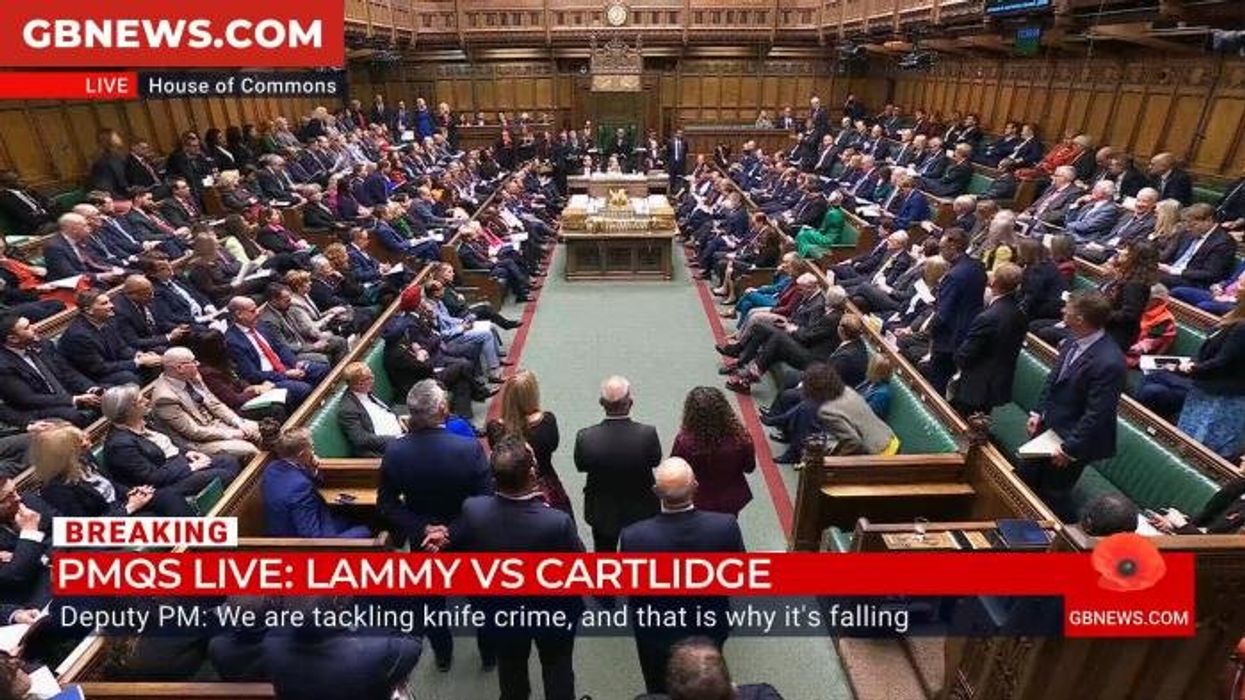NHS set to deny life-saving prostate cancer checks for most men — putting 1,500 lives at risk

WATCH NOW: Former Prime Minister Rishi Sunak MP questions David Lammy over the Government's policy on tackling prostate cancer
|GBN

Prostate cancer is the most widespread cancer among males in the UK
Don't Miss
Most Read
NHS advisers are expected to reject routine prostate cancer screening for men aged between 45 and 70 years old, even though evidence suggests such testing could save around 1,500 lives each year.
The National Screening Committee's draft ruling means the health service will not roll out testing for this age group unless Health Secretary Wes Streeting steps in to overrule the recommendation.
Only men with certain genetic mutations are expected to receive screening recommendations under the proposed guidelines.
It comes as research points to significant potential benefits from wider testing programmes, sparking debate about whether the NHS should expand access to prostate-specific antigen (PSA) tests for men at higher risk of developing the disease.
TRENDING
Stories
Videos
Your Say

The NHS currently uses prostate-specific antigen (PSA) tests to detect the disease
|GETTY
Prostate cancer strikes 63,000 British men every year and claims 12,000 lives, making it the most widespread cancer among males in the UK.
Despite these stark figures, it remains the only major cancer that does not have a screening programme in place.
Men can ask their GP for PSA tests if they do not have symptoms, but doctors are not allowed to offer these tests proactively to patients who might benefit from them.
This system has created a postcode lottery where wealthier areas see much higher testing rates, while the most deprived parts of the country suffer the highest death rates from the disease.
Former prime minister Rishi Sunak is spearheading a cross-party coalition of 125 MPs who want the screening decision reversed, with Lord Cameron, who recently opened up about his prostate cancer diagnosis, also backing calls for expanded testing.
The MPs delivered an open letter to Mr Streeting on Monday, describing the introduction of screening tests as a potential "legacy-defining advance for men's health".
Sir Chris Hoy has become another prominent voice calling for change after being diagnosed with terminal cancer that started in his prostate in 2023.
LATEST DEVELOPMENTS
The six-time Olympic cycling champion was never offered a PSA test that might have caught the disease earlier, despite both his father and grandfather having suffered from prostate cancer.
The National Screening Committee believes large-scale testing for men aged 50 and over would lead to thousands being unnecessarily harmed by the process.
The committee has previously found that PSA tests struggle to tell the difference between dangerous and harmless tumours, making them unreliable for widespread use.
There is also concern about the serious side effects that can come with prostate cancer treatments, including impotence and incontinence, which could affect men who might never have needed intervention.
These risks have led NHS advisers to conclude routine screening could do more harm than good for many men who would undergo treatment for tumours that might never have caused them problems.
The committee appears set to maintain its stance that current testing methods aren't suitable for a national programme.
It is understood that Mr Streeting plans to bring in a new team of experts to look at the evidence and broader implications of introducing screening programmes.
He sees the draft recommendations released today as "the first step, not the conclusion" in the decision-making process.
Mr Streeting told MPs earlier this week he wants to "thrash out" the arguments through "evidence-based discussion" once the consultation gets underway.

Prostate cancer strikes 63,000 British men every year
|GETTY
"Whatever the recommendation, we need to do much better on diagnosis and treatment of this terrible condition," Streeting said in the Commons.
The draft recommendation will go through a 12-week public consultation period before ministers receive the final advice in March.
It is understood Mr Streeting is keeping an open mind about potentially overruling the committee's guidance if the evidence supports a different approach.
Our Standards: The GB News Editorial Charter










